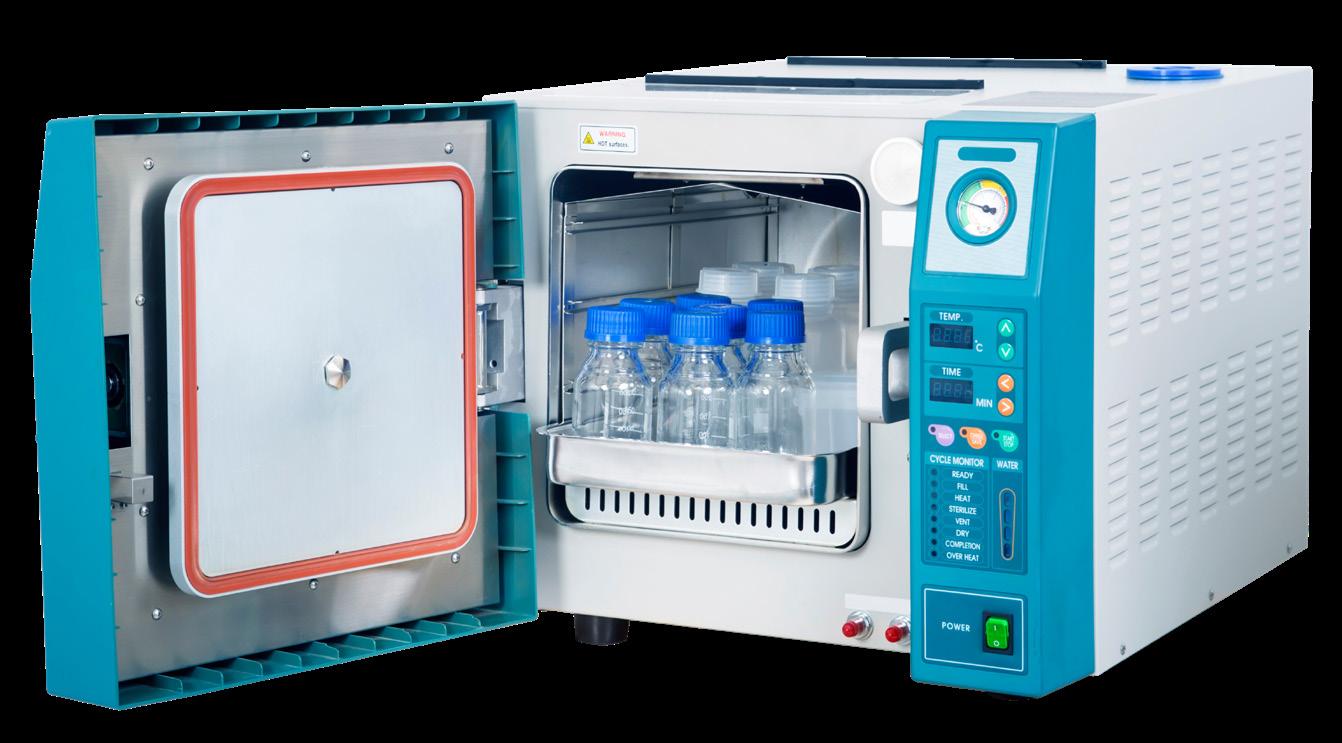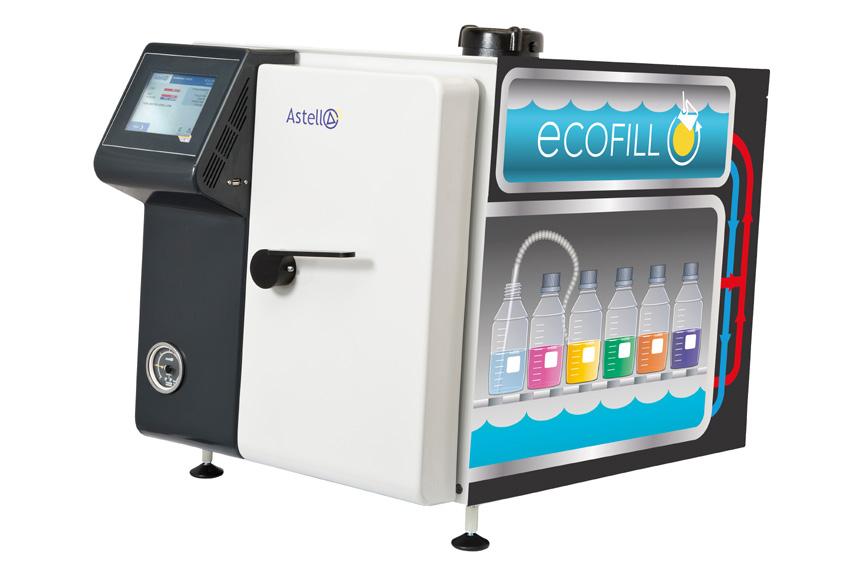
3 minute read
ECOFILL AUTOCLAVES: Revolutionising Sustainability in the Food Industry
Enter ECOFILL AUTOCLAVES – a groundbreaking technology that is transforming the way food processing facilities operate. These autoclaves not only streamline sterilisation
Redefining Sterilisation Practices
Sterilisation is a critical process in the food industry, ensuring the safety and shelf life of packaged foods. Traditionally, autoclaves have relied on significant amounts of water and energy to achieve the necessary levels of sterilisation. However, Ecofill autoclaves employ innovative design features and advanced technologies to minimise resource consumption while maximising efficiency.
WATER CONSERVATION: CAPTURING AND REUSING WATER
Water scarcity is a pressing global challenge, and the food industry has a significant role to play in conserving this precious resource. Ecofill autoclaves address this issue by incorporating water capture and reuse systems. During the sterilisation process, steam condensate is collected and treated, eliminating the need for continuous freshwater intake. By recycling water within the system, Ecofill autoclaves significantly reduce water consumption, minimising the environmental footprint of food processing operations.
ENERGY EFFICIENCY: HARNESSING HEAT ENERGY
Energy-intensive processes pose a considerable sustainability challenge for the food industry. Ecofill autoclaves tackle this issue by optimizing energy utilisation and minimising wastage. These autoclaves are equipped with sophisticated heat recovery systems that capture and reuse thermal energy generated during the sterilisation process. By harnessing heat energy that would otherwise be lost, Ecofill autoclaves operate with remarkable efficiency, reducing electricity consumption and lowering operational costs.
Environmental Benefits

The adoption of Ecofill autoclaves offers a multitude of environmental benefits. By conserving water and minimising energy usage, these innovative systems help mitigate the environmental impact of food processing operations. Reduced water consumption translates to lower strain on freshwater sources and ecosystems, while improved energy efficiency contributes to greenhouse gas emissions reduction and climate change mitigation. Furthermore, Ecofill autoclaves promote sustainable resource management practices, aligning with the broader goals of corporate sustainability and environmental stewardship.
Economic Advantages
In addition to their environmental benefits, Ecofill autoclaves deliver compelling economic advantages for food processing facilities. By minimising water and energy consumption, these systems help reduce utility costs and enhance operational efficiency. Moreover, the longevity and reliability of Ecofill autoclaves translate to lower maintenance expenses and downtime, maximising productivity and profitability over the long term. With a focus on sustainability and cost-effectiveness, Ecofill autoclaves offer a strategic investment for food manufacturers seeking to remain competitive in a rapidly evolving industry landscape.
Ecofill autoclaves represent a paradigm shift in food processing technology, offering a sustainable and cost-effective solution for sterilisation processes. By capturing and reusing water and heat energy, these innovative systems help conserve resources, minimise environmental impact, and enhance operational efficiency. As the food industry continues to prioritize sustainability and responsible stewardship, Ecofill autoclaves emerge as a compelling choice for businesses seeking to align their operations with environmental best practices while achieving economic viability. With their transformative capabilities, Ecofill autoclaves pave the way for a more sustainable and resilient future for the food industry.











